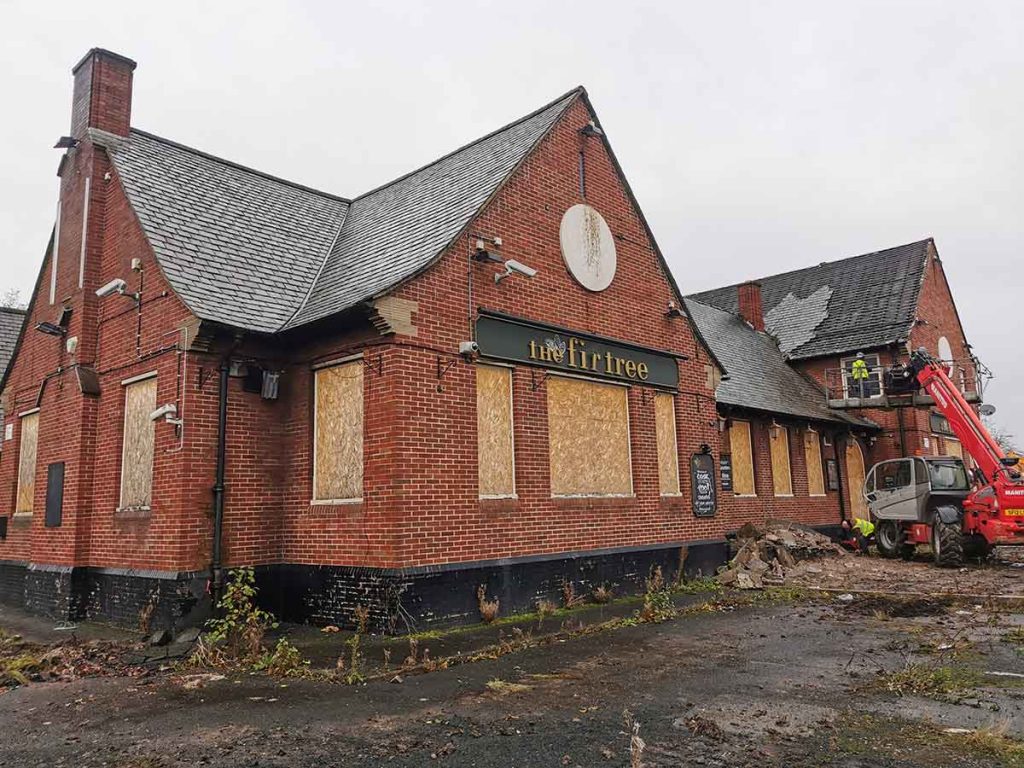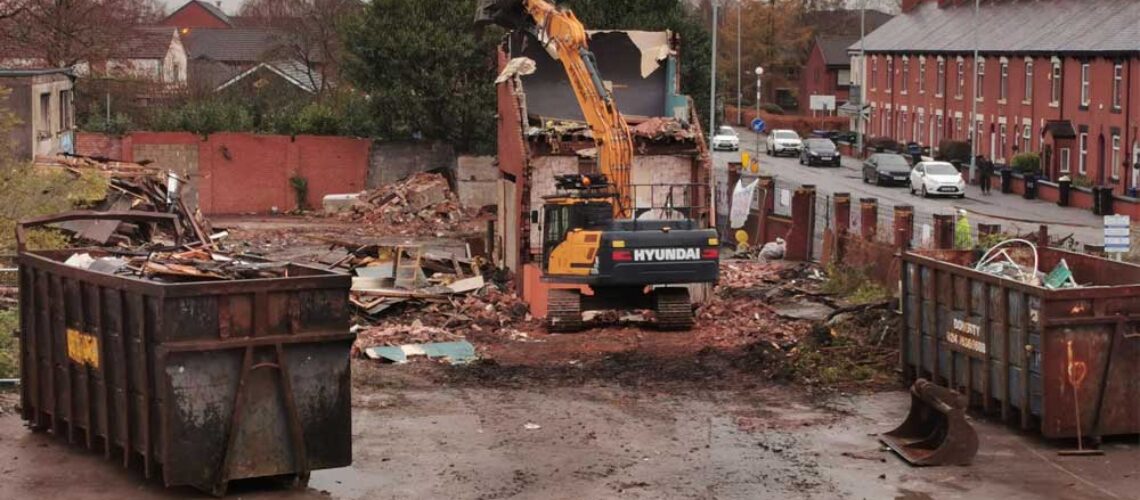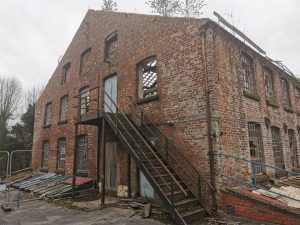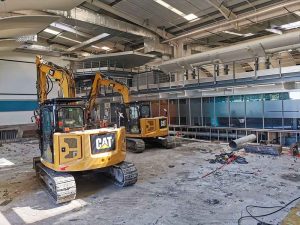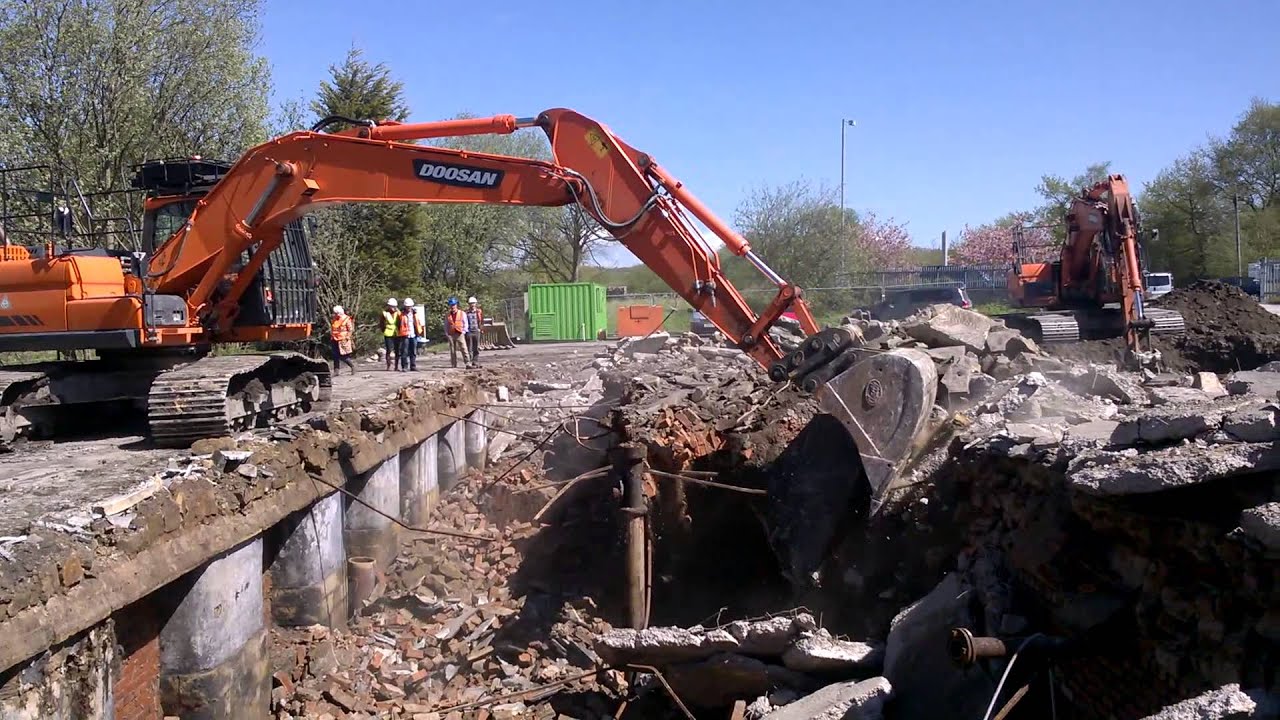Strip Out Demolition Project in Stockport
Our aim on all demolition projects is to recycle as much material as possible and help the Client make the overall contract as ‘sustainable’ as possible. To that end, we salvaged all the roof slates for re-use and recycled c.50tons of scrap metals. All the general waste materials were filtered through local recycling centres to extract as much usable material as possible and to minimise the waste going to landfill.
This was the second demolition project that we had been awarded for Lidl UK Ltd and we were delighted to have been chosen once again. Repeat business like this highlights the quality, competence and competitiveness of our demolition contractor services.
The demolition scheme was located on a very busy road junction in Reddish, Stockport and adjacent to an NHS Health Centre, with significant volumes of traffic and pedestrians in the locale, and therefore great care was required in respect of dust, noise, and wagon/plant movements.
Specialist Demolition Services
The initial ‘strip-out’ works included the removal of some high-risk ‘notifiable’ asbestos materials, so we commissioned the services of a specialist asbestos removal company to help us with this element of the works; thereby harnessing and embracing the specialist skills and equipment of a specialist sub-contractors in order to lower risk.
The initial plan was for our demolition contractors to be 6-weeks on-site, but with some ‘extra-effort’ from our highly skilled team, we had the structure ‘stripped-out’ and razed to the ground within 15 days before the holidays and then returned for 4-days to carry out the crushing and recycling works. Overall, we completed the demolition work within budget and finished 2 weeks early to the delight of the Client.
In addition to recycling 28 tonnes of internal ‘soft-strip’ material and 23 tonnes of timber; once the main structure had been demolished, we crushed and screened all the concrete, brick and other ‘hard materials’ to produce 6F2 recycled aggregate, which the Client could then use in the redevelopment works. This generated c.1000 tonnes of aggregate, which would have traditionally gone to tip, thereby saving the tipping cost over 50 loads of heavy waste, and also saving the Client from purchasing 1000 tonnes of newly quarried stone.
